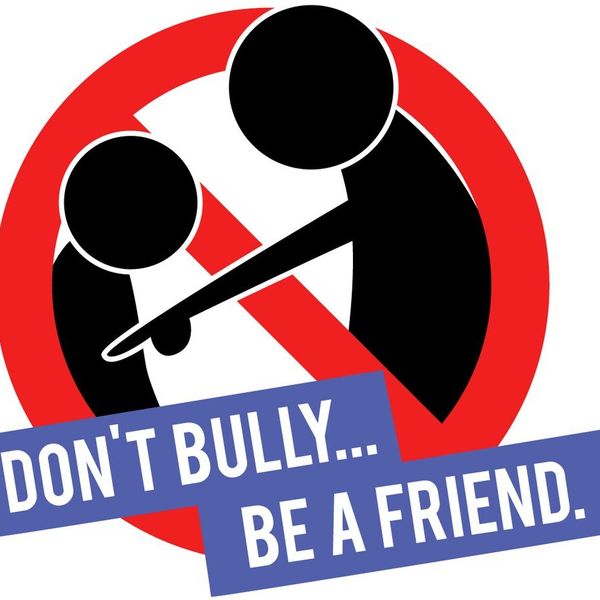A few days ago, a 13-year-old boy died. His name was Daniel Fitzpatrick, and after being bullied incessantly for months at his school, he hung himself in his attic. By all accounts, he was an intelligent, sensitive young man who “just wanted to be a kid.” Yet he was mercilessly picked on and left out by his peers and teachers. They badgered him about his weight, his demeanor, his grades, anything and everything. Fellow classmates would throw balls at him during gym and his teachers would call him out and humiliate him in class. He endured this torment until he could no longer and tragically cut his life short. If this does not make you sick to your stomach, then you should re-examine your moral compass.
This story struck a chord with me, because as a little kid I was bullied. Reading this story, memories of my own bullying came flooding back and with it all the emotions of fear, hopelessness, despair, anger, and depression. For most of my life I was always smaller than the other kids. Combined with my emotional mindset, I was often a target of ridicule, exclusion, and even physical assaults. I was lucky, I was able to get help from supportive teachers who cared about me enough to step in whenever they saw me in trouble.
Daniel did not have that luxury. The adult figures in his school, the people paid to protect and care for their students, did nothing. Bullies can make someone’s life hell, and although I was able to overcome it, my story, Daniel’s story, and the stories of thousands of other bullying victims is a tale told all too often.
But even with all this information there are still those who choose to blame the victim and his parents. Bullying victims are all too familiar with the arguments these “supportive” people give. One of the most popular is shifting the blame from the bullies to the victim’s parents. If they had only stepped in, the argument goes, then this could have been avoided.
This argument is flawed for a number of reasons. First of all, it assumes that the parents did not care enough about their child’s wellbeing. Second, it assumes that the parents did not do anything. More often than not, parents of those bullied do everything they can to get the abuse to stop. Another is even more sinister. Many will say that it is up to the victim themselves to stop the abuse. These people want the victim to somehow turn into Bruce Lee and simply beat up the bullies afflicting them, as if they are not being picked on specifically because they are physically weaker than the assailant, or that the victim did not try to fight back. To all the critics that victim blame I will say this now, and say it only once: there is no one to blame for bullying, except the bullies themselves and the people that enable them.
This must stop. There are no excuses, and no denying the problem exists. Everyone must do their part to end bullying. How many more kids have to die because they could no longer suffer through abuse at the hands of their peers and authority figures? How many more kids have to deal with mental anguish, physical pain and fear at the hands of bullies? This is not just something you get through and accept. It is not just a part of growing up. This is a problem and no one, man, woman, or child should deal with it. No one deserves to be bullied, or made fun of, or made to feel worthless and cast aside.
I believe the saddest part of this whole story is that Daniel Fitzpatrick will never be able to reach his full potential. He will never experience all life has to offer, and his family will never be able to watch him grow up and enjoy his presence in their lives. Instead, he is gone, and his life will forever be intertwined with the horrible specter of bullying, and his family will have to live without him all because of something so preventable.





















